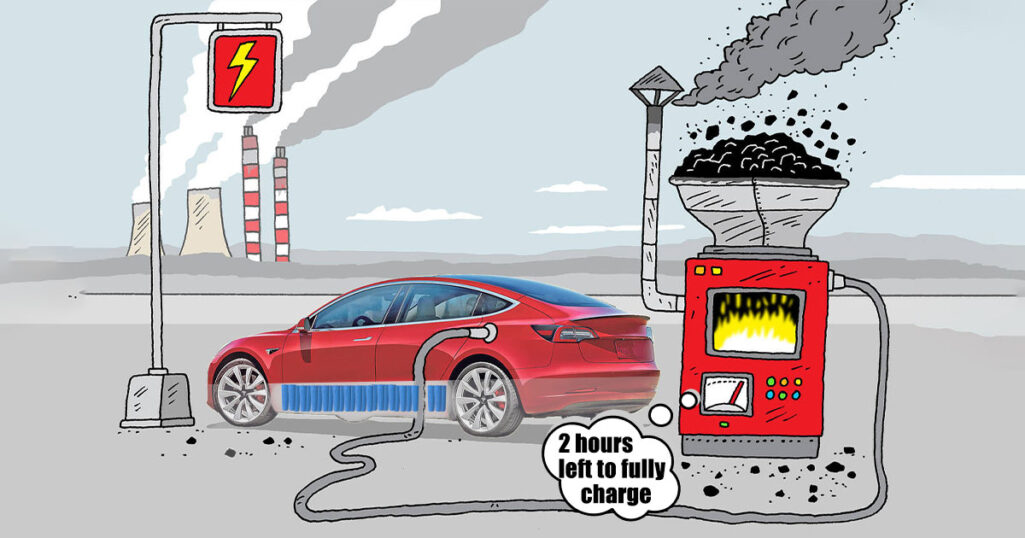In recent years, the automotive industry has seen a significant shift towards electric cars. Proponents of this trend argue that electric cars are the future of transportation and a crucial step towards a more sustainable planet. However, it’s essential to critically examine this claim and consider whether electric cars truly deserve the title of the future. In this article, we will explore the various aspects of electric cars and present a balanced perspective on why “Electric Cars Are Not The Future.”
The Environmental Perspective
Electric Cars Are Not The Future of True Sustainability
Many people view electric cars as the solution to our environmental problems. They emit zero tailpipe emissions, which is indeed a step in the right direction. However, the production and disposal of electric car batteries have a significant environmental footprint. Mining and processing the materials required for lithium-ion batteries can lead to habitat destruction and pollution. Furthermore, the recycling and disposal of these batteries pose substantial challenges.
To be truly sustainable, we need to explore alternative technologies and promote efficient public transportation systems. Electric cars are not the ultimate answer to our environmental woes. There are other options like hydrogen fuel cells and advanced biofuels that deserve consideration in our quest for a sustainable future.
The Infrastructure Challenge
Electric Cars Are Not the Future Unless Infrastructure Keeps Pace
One of the main challenges for electric cars to become the future of transportation is the need for extensive charging infrastructure. While charging stations are becoming more common, they are still far from ubiquitous, particularly in rural areas. This lack of infrastructure hinders the adoption of electric cars for long-distance travel.
For electric cars to become the future, governments and private companies must invest heavily in building a comprehensive charging network. Until then, the limited range and inconvenience of charging will remain significant hurdles that electric cars must overcome.
Economic Realities
Electric Cars Are Not the Future for Everyone
Electric cars are often portrayed as more cost-effective in the long run due to lower operating costs and potential government incentives. However, the upfront cost of purchasing an electric car is significantly higher than that of traditional gasoline-powered vehicles. This cost barrier makes electric cars inaccessible to many consumers, especially those in lower-income brackets.
Until the cost of electric cars becomes more competitive with traditional vehicles, they cannot be considered the future for everyone. There is a need for more affordable options to ensure widespread adoption.
Charging Time and Range Anxiety
Electric Cars Are Not the Future Until Charging Becomes Faster and Ranges Longer
Charging an electric car takes considerably longer than filling up a gas tank, leading to what is commonly known as “range anxiety.” The fear of running out of power on the road can deter potential buyers from making the switch to electric. While technology has improved, charging times and range remain obstacles to making electric cars the future of transportation.
Battery technology must evolve further to provide longer ranges and faster charging. Until electric cars can match the convenience of gasoline-powered vehicles, they cannot truly claim the title of the future.
Energy Source Dilemma
Electric Cars Are Not the Future Unless the Energy Source Is Sustainable
The sustainability of electric cars depends significantly on the source of electricity used to charge them. If the electricity comes from coal or other non-renewable sources, the environmental benefits of electric cars are diminished. To ensure a sustainable future, we must transition to clean and renewable energy sources.
Electric cars alone cannot bring about this change. A comprehensive shift in the energy sector is necessary to make electric cars a more sustainable choice for the masses.
Conclusion: A More Balanced View
In conclusion, it’s clear that electric cars have a role to play in the future of transportation. They are a step in the right direction when it comes to reducing emissions and dependence on fossil fuels. However, it’s crucial to acknowledge that “Electric Cars Are Not The Future” in isolation.
To truly make them a sustainable and accessible option for everyone, we need to address the environmental impact of battery production, expand charging infrastructure, make electric cars more affordable, improve charging times and ranges, and transition to clean energy sources. Only then can electric cars rightfully claim their place as a significant part of the future of transportation.
